Description
The sesame plant grows in tropical and subtropical parts of the world, including Asia, Africa, and South America. People cultivate it for its edible seeds, which are a popular addition to many dishes all over the world.
The sesame plant, Sesamum indicum, produces seeds that contain protein, fiber, and healthy fats. Sesame seeds also provide calcium, B vitamins, vitamin E, and antioxidants. People can eat sesame seeds as they are, add them as an ingredient to meals, or use sesame seed oil in cooking. Sesame seeds may be one of the oldest and indispensable condiments ever known to mankind. They can be versatile, fragrant, and are nutty variants. The seeds add a crunch to a variety of Asian and Middle Eastern dishes. Moreover, it might also be used as a cooking oil and to make sauces and dressings. Sesame seeds are known for their food flavor-enhancing abilities too. The potent nutritional benefits of sesame seeds may include their ability to improve heart health, lower blood pressure, build strong bones, improve male fertility, and manage diabetes. They might also help cure sleep disorders, improve digestion, reduce inflammation, boost respiratory health, aid in dental care, and treat depression and chronic stress.
Health Benefits There is a reason people have been growing sesame seeds around the world since prehistoric times—they are good for you in a number of ways. Among other health benefits, consuming sesame seeds can help in the following ways: Lower Your Cholesterol Sesame seeds contain lignans and phytosterols, which are plant compounds that can help lower cholesterol. Phytosterols are also believed to enhance your immune response and decrease your risk of certain cancers. Researchers found that out of all the nuts and seeds commonly eaten in the United States, sesame seeds had the highest total phytosterol content with 400 to 413 milligrams per 100 grams.
These and other substances in sesame seeds are also known to prevent high blood pressure.Fight Infections
The sesamin and sesamolin in sesame seeds are known for their antioxidant and antibacterial properties. Antioxidants
are important to your health because they protect your body against various diseases by slowing down damage to cells.
The antibacterial activity of sesame seeds is proven to fight against staph infections and strep throat as well as
common skin fungi, such as athlete’s foot.
Oral Health
Sesame seeds can also get rid of the bacteria that cause plaque on your teeth. An ancient practice called oil pulling
is shown to improve your oral hygiene and health when practiced regularly and correctly. Sesame oil is one of the most
common oils used in this practice, which involves swishing a tablespoon of oil around your mouth when you wake up in the
morning.
Aid in Diabetes Treatment
Research shows that the oil of sesame seeds enhances the effectiveness of traditional type 2 diabetes medications when
they are taken together.
Type 2 diabetes is a lifelong disease that doesn’t allow your body to make insulin in the way it should. One aspect of this condition is high blood sugar, which is called hyperglycemia. Eating healthy foods like sesame seeds can help people with type 2 diabetes reach their target blood sugar levels. Additionally, the antioxidants in sesame oil reduce the amount of sugar in your blood. Help Prevent and Treat Cancer The sesamol in sesame seeds has the following properties:
-
Antioxidant
-
Anti-mutagenic (stops the mutation of cells)
-
Anti-hepatotoxic (prevents liver damage)
-
Anti-inflammatory (fights inflammation)
-
Anti-aging
-
Chemopreventive (prevents disease and infection)
Each of these properties plays a role in cancer prevention and therapy. Sesamol may also have the ability to regulate apoptosis (cell death), which means that it contains the potential to target cells at various stages of the cell cycle. However, more research is needed to confirm this particular use of sesame seeds. Nutrition Sesame seeds contain a variety of healthy nutrients. As a rich source of protein, they are a great addition to vegetarian and vegan diets.
They’re also packed with copper, which helps make and red blood cells and also supports your immune system function. In fact, just one cup of dried sesame seeds gives you 163% of your daily value of copper. Sesame seeds are an excellent source of manganese and calcium, both of which help your bones grow healthy and strong. Calcium also plays a role in nerve signal transmission, muscle movement, blood vessel function, and hormone release. Other vitamins and minerals found in sesame seeds include:
-
Phosphorous
-
Magnesium
-
Iron
-
Zinc
-
Molybdenum
-
Selenium
-
Vitamin B1
Nutrients per Serving A quarter-cup serving of dried sesame seeds contains:
-
Calories: 206
-
Protein: 6 grams
-
Fat: 18 grams
-
Carbohydrates: 8 grams
-
Sodium: 4 milligrams
-
Fiber: 4 grams
-
Sugar: 0 grams
Things to Watch Out For Because sesame seeds contain a high amount of fiber, eating too many of them may cause bowel obstructions—when something blocks your large or small intestine—in people who have a large stricture or narrowing of the bowel. For people with this issue, sesame seeds may also cause ischemia—when your body doesn’t get enough blood—or perforation (a small hole or tear).

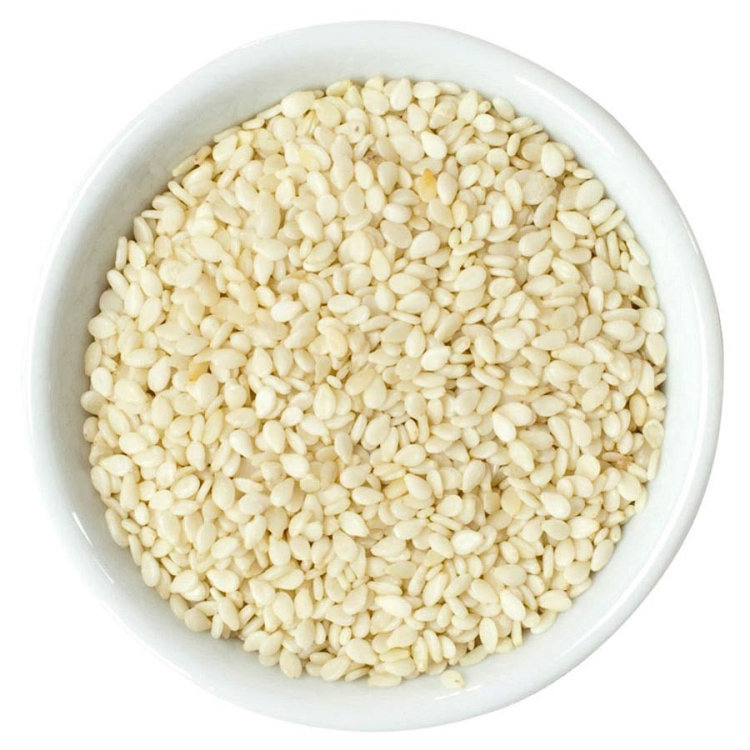

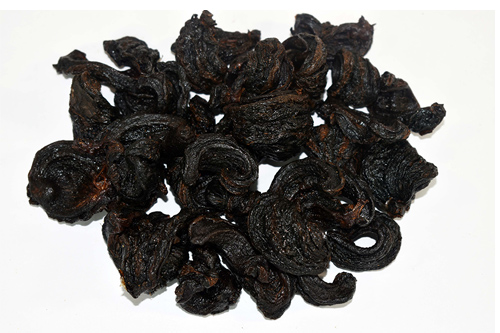
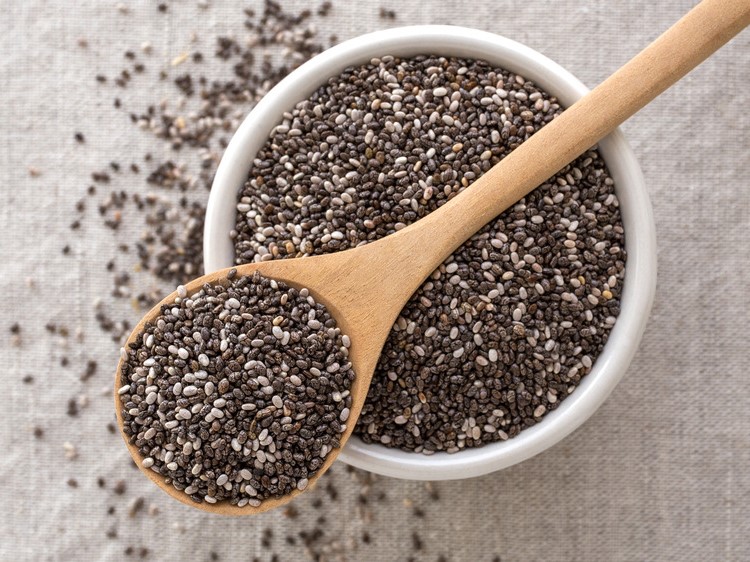
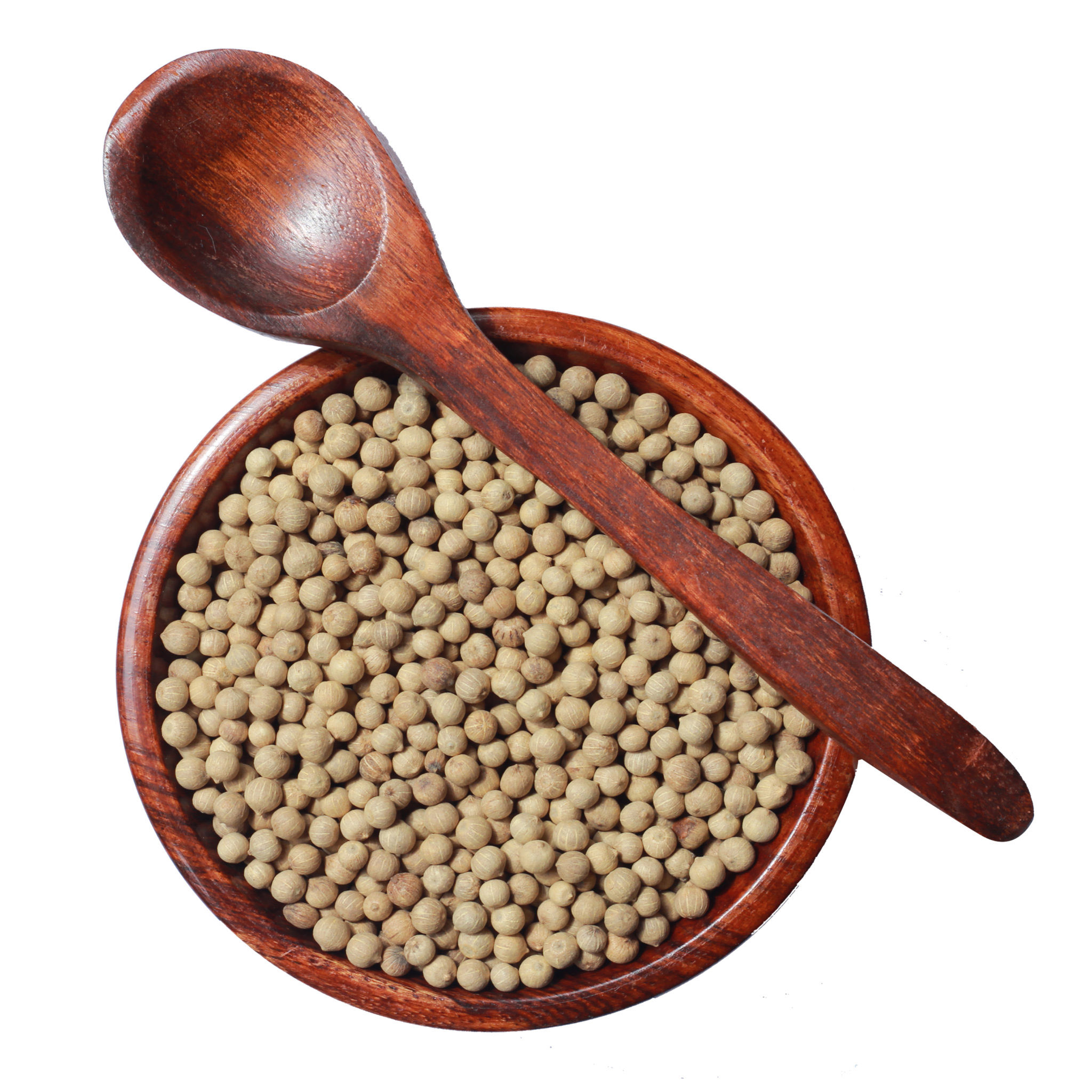
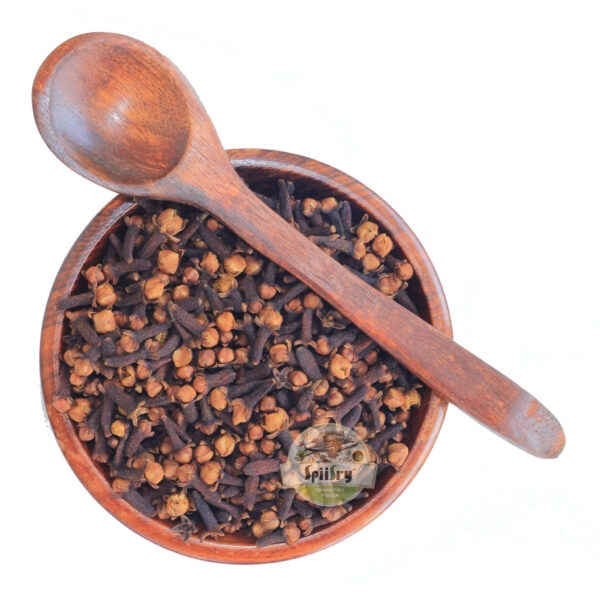
Reviews
There are no reviews yet.